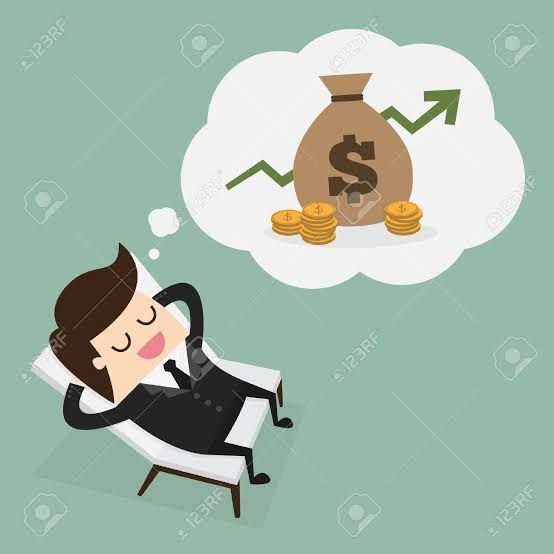INTRODUCTION
Dreams are a common experience. Some are scary, some are funny. Recent research into how the brain works helps us understand why we dream. Strange combinations of ideas in our dreams may make us more creative and give us ideas that help us to solve problems. Or, when memories from the day are repeated in the brain during sleep, memories may get stronger. Dreams may also improve our moods. Together, these studies show that dreams and sleep are important for performing well when we are awake Source
Every single one of us dreams and each one is experienced at a personal level, but interpreting them and figuring what they actually mean is still a mystery to us all. The histories of dreams, dates all the way back to over 5,000 years ago Source.
Before we continue, permit me to quickly say a thing about dreams in general.
WHAT ARE DREAMS?
Although it is hard to define what a dream is, for the purpose of this article, we will define dreams as our thoughts during sleep that we recall when we wake up. So, sleeping dreams are not the same as “daydreaming.” Dreams are mostly visual (made up of scenes and faces; sound, taste, and smell are rare in dreams Source
According to the American Heritage Dictionary of the English Language, a dream is a succession of images, ideas, emotions, and sensations that usually occur involuntarily in the mind during certain stages of sleep. Reference. Dreams are basically stories and images that our mind creates while we sleep. They can be vivid. They can make you feel happy, sad, or scared. And they may seem confusing or perfectly rational Reference.
 pix 2
pix 2
TYPES OF DREAMS
a. Lucid dream:
Kahan LaBerge defines a lucid dream as a type of dream where the dreamer becomes aware that they are dreaming. During a lucid dream, the dreamer may gain some amount of control over the dream characters, narrative, or environment Source.
b. False awakening:
This is a vivid and convincing dream about awakening from sleep, while the dreamer in reality continues to sleep. After a false awakening, subjects often dream they are performing daily morning routine such as showering, cooking, cleaning, eating, and using the bathroom.
c. Daydream:
Daydream is a fantasy you have while you're awake. Daydreams are pleasant, and they can be so absorbing that they distract you from what's going on around you.
You might have a daydream about moving to a big city, or about how you'd spend your millions if you won the lottery Source.
 pix 3
pix 3
WHY DO WE DREAM?
A good number of researches have been done on dreams and aspirations. Researchers still don’t entirely agree on the purpose of dreams. There are, however, some widely held beliefs and theories. They include:
Dreams as your muse
One theory for why we dream is that it helps facilitate our creative tendencies. Artists of all kinds credit dreams with inspiring some of their most creative work. You may have awakened at times in your life with a great idea for a movie or a song, too. ReferenceDreams as memory aides
One widely held theory about the purpose of dreams is that they help you store important memories and things you’ve learned, get rid of unimportant memories, and sort through complicated thoughts and feeling.Source

pix 4
CAN DREAMS PREDICT THE FUTURE?
According to researchers, dreams come true or tell of a future event. When you have a dream that plays out in real life, experts say it’s most likely due to:
- Coincidence
- Bad memory
- An unconscious linking of known information
But sometimes, dreams can motivate you to act a certain way, thus changing the future.Source.
WHY ARE DREAMS HARD TO REMEMBER?
Researchers don't know for sure why dreams are easily forgotten. Maybe we’re designed to forget our dreams because if we remembered them all, we might not be able to tell dreams from real memories.
Some say it’s not that our minds forget dreams but that we don't know how to access them. Dreams may be stored in our memory, waiting to be recalled. This may explain why you suddenly remember a dream later in the day: Something may have happened to trigger the memory.
Source
TIPS FOR RECALLING DREAMS
The “WEB MD” states that,
If you’re a sound sleeper and don't wake up until the morning, you’re less likely to remember your dreams, compared with people who wake up several times in the night.” Some tips may help you remember your dreams:
- Wake up without an alarm. You’re more likely to remember your dreams if you wake up naturally than with an alarm. Once the alarm goes off, your brain focuses on turning off the annoying sound, not on your dream.
- Remind yourself to remember. If you make a decision to remember your dreams, you’re more likely to remember them in the morning. Before you go to sleep, remind yourself that you want to remember your dream Source.
CONCLUSION
Dreams are necessary. Without dreams, there will be no ambition to chase. There will be no goal to reach. We won't have anything to aim for. We will all be nothing without dreams. Not having dreams is like chasing a traceless murder. It is like following an invisible shadow. It is a dreadful goose chase. We must know what we want to do and follow that ambition. We can’t achieve anything in life without goals, and for these goals, we need to dream Source.


Congratulations, your post has been upvoted by @r2cornell, which is the curating account for @R2cornell's Discord Community.